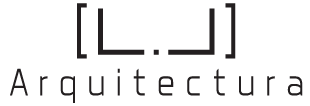Grind sports nutrition
Pasiakos SM, Cao JJ, Margolis LM, Sauter ER, Whigham LD, Mcclung JP, et al. Effects of high-protein diets on fat-free mass and muscle protein synthesis following weight loss: a randomized controlled trial spin casino. FASEB J. 2013;27:3837–47.
Blends of protein sources might afford a favorable combination of key nutrients such as leucine, EAAs, bioactive peptides, and antioxidants, but more research is needed to determine their ideal composition.
Herda AA, Herda TJ, Costa PB, Ryan ED, Stout JR, Cramer JT. Muscle performance, size, and safety responses after eight weeks of resistance training and protein supplementation: a randomized, double-blinded, placebo-controlled clinical trial. J Strength Cond Res. 2013;27:3091–100.
International society sports nutrition
Carbohydrate (CHO) and caffeine (CAF) mouth rinsing have been shown to enhance endurance and sprint performance. However, the effects of CHO and CAF mouth rinsing on muscular and cognitive performance in compa…
The International Society of Sports Nutrition (ISSN) provides an objective and critical review related to the intake of protein for healthy, exercising individuals. Based on the current available literature, the position of the Society is as follows:
Taurine has become a popular supplement among athletes attempting to improve performance. While the effectiveness of taurine as an ergogenic aid remains controversial, this paper summarizes the current evidenc…
Yang Y, Breen L, Burd NA, Hector AJ, Churchward-Venne TA, Josse AR, et al. Resistance exercise enhances myofibrillar protein synthesis with graded intakes of whey protein in older men. Br J Nutr. 2012;108:1780–8.
Various nutritional strategies are adopted for athletes to maintain and to improve performance during the competition season. Betaine may enhance performance during a competitive season by increasing the testo…
Physical training produces changes in the extracellular and intracellular concentrations of trace minerals elements. To our knowledge, only three compartments have been studied simultaneously. The aim of the p…
Sports nutrition degrees
After receiving a bachelor’s degree, students can apply for a program at the graduate level to specialize in sports nutrition. Prerequisites for entering a graduate program vary, with some schools requiring an undergraduate degree in a related field like general nutrition or exercise science. Coursework for a master’s degree in sports nutrition typically includes topics such as kinesiology, exercise physiology, exercise and aging, vitamins and minerals, health promotion and sports supplements.
Another component of being a sports nutritionist is constantly analyzing their client’s performance. They will work with their clients to establish short-term and long-term goals for nutrition, and monitor their client’s ability (or inability) to meet those goals. Based on the performance of their client, a sports nutritionist might tweak the nutrition program they’ve outlined to be more fitting for where their client is at in his or her nutritional journey.
Sports nutritionists work directly with athletes to help them become more conscious about the foods, drinks, and supplements that they are putting into their bodies. Nutrition has been proven to enhance athletic performance. Sports nutritionists focus on three basics:
The sports nutrition program focuses on the application of nutrition principles as they relate to sport and human performance. Students will explore how nutrition impacts performance. Graduates will be prepared for careers including sports nutrition, personal training or work in the fitness industry, including product development and research. Students may choose to supplement their academic training with national certification in a specific area including personal trainer, strength and conditioning coach or health coach.
Sports nutritionists stay informed of the latest nutritional scientific research and incorporate new findings into their dietary recommendations. Aspiring sports nutritionists should also possess specific skills and personal characteristics, like organizational skills, an empathetic personality, and the ability to communicate clearly.

